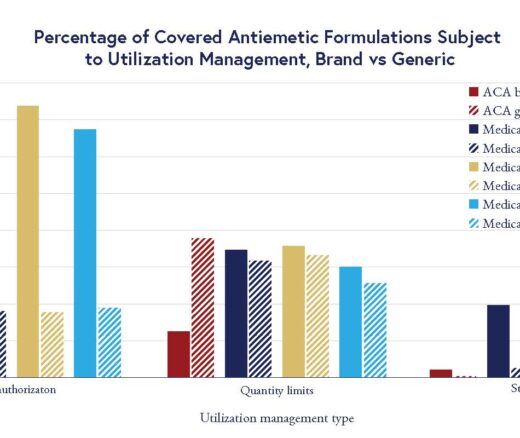
Medicare’s Hidden Fix for High Drug Costs
Medicare’s Payment Plan Can Ease Seniors’ Crushing Drug Costs but Medicare Buries it in the Fine Print
Blog Post
The Affordable Care Act, the most ambitious reform of the health system in decades, was “the hot center of American politics” for years, notes LDI Senior Fellow Dan Hopkins.
Writing in his new book Stable Condition: Elites’ Limited Influence on Health Care Attitudes, Hopkins finds larger lessons that policymakers and elected officials can draw from the law’s slow path to popularity.

The book focuses on two traditional tools that leaders use for swaying public opinion on an issue: policymaking and messaging. Neither was successful in influencing Americans’ feelings about the ACA. Ultimately, he concludes that the ACA’s complexity led it to become synonymous with its least popular elements for years after its enactment.
Yet the ACA has had enduring influence. In part because of its rocky reception, more sweeping health reforms are unlikely to happen anytime soon, Hopkins said. The ACA experience continues to affect Democratic leaders’ policy choices, such as their focus on incentives instead of penalties in the recent Inflation Reduction Act, he argues.
Health care remains an issue that touches on citizens’ daily lives and represents about 18% of the U.S. economy. As leaders continue to struggle with ways to lower costs and improve care, we sought Hopkins’ insights from his book that might be relevant to current and future health reform conversations.
Hopkins: Politicians and pundits alike typically assume that public spending is a good way to win votes. Elected officials love to throw their names on construction projects for just that reason. Researchers often point to Social Security or to the G.I. Bill as examples of public policies that reshaped citizens’ attitudes and political behaviors.
After the Supreme Court’s 2012 decision mostly upholding the ACA, states could decide whether to expand Medicaid. Medicaid is worth thousands of dollars to the poor and elderly Americans who receive it.
So one key question is, did receiving Medicaid thanks to the ACA influence political attitudes? The answer is a qualified “yes.” Low-income Americans in states that expanded Medicaid became more supportive of the ACA, which is what you’d expect if the program was influencing political attitudes. But the effects weren’t very large, and they were limited to the relatively small fraction of Americans who directly benefited. Voter turnout among that group is also relatively low.
Hopkins: Among politicians, operatives, and pundits, one go-to explanation for political success or failure is messaging. So both Democrats and Republicans tried a slew of messages. But public opinion was generally stable (and negative) towards the ACA in the years after passage, and even the most provocative messaging failed to break through and changed public opinion.
For instance, some point to Sarah Palin’s invocation of “death panels” as effective messaging. But in surveys that followed, virtually no Americans mentioned the phrase when explaining why they did or did not support the law. Those of us who watch politics closely too often make the mistake of thinking that our neighbors are influenced by specific messages.
Hopkins: To probe what White Americans’ racial attitudes had to do with their views on the ACA, I conducted a series of survey experiments using “priming”—a subtle cue that foregrounds race in the reader’s mind, such as a reminder of the millions of Black and Latino beneficiaries from the law. I found little evidence that priming race-related considerations changed respondents’ attitudes towards the ACA in the short-term.
Does that mean that White racial attitudes and prejudices are irrelevant? No, not necessarily. There’s extensive scholarship showing that racial attitudes are closely related to political partisanship. So when we observe that Democrats and Republicans are staunchly divided on the ACA, some of that divide may emerge from their differing racial attitudes and their differing narratives about public policies and deservingness.
Hopkins: For generations, political scientists have observed that the status quo—the existing policy—is hard to displace. Partially, this immobility is grounded in public policymaking, and in the incredible challenge of getting new legislation through both houses of Congress and then signed by the president, especially in the face of interest-group opposition.
What I show in the book, though, is that the bias towards the status quo isn’t just a feature of our institutions—it’s also a feature of public opinion and political psychology. Initially, the ACA was a disruptive reform, and many Americans viewed it skeptically.
But slowly, it came to be the status quo, and by 2017, when the Republicans were finally positioned to repeal it, they found themselves fighting against the ACA.
Hopkins: Our health system is extraordinarily complex and costly, and so the impulse to streamline the current system from two experts is both understandable and quite valuable.
But the current system’s complexity is a product of American politics, and having studied the ACA closely, I am confident in saying that it was about the most ambitious health care reform that could have passed Congress, been enacted into law, and withstood the political and legal challenges that followed for over a decade.
Given that history, a more disruptive health reform, even if it were in service of a more streamlined, cost-effective system, seems highly unlikely anytime soon.
Hopkins: In critical ways, the Inflation Reduction Act is a product of the lessons of the ACA and its bitter political battles. The act was largely designed to avoid a carbon tax or other direct costs on Americans, instead providing large-scale subsidies to move the American economy towards renewable energy. I think that’s a direct outgrowth of the Democrats’ experience with the individual mandate in the ACA, which was consistently among the legislation’s least popular features.
The authors of the Inflation Reduction Act already internalized one key lesson of the ACA—they built a policy that was heavy on carrots and light on sticks. Policymakers should focus on designing good policies, and evaluating them based on whether they achieve their aims and can survive a shift in the political winds.


Medicare’s Payment Plan Can Ease Seniors’ Crushing Drug Costs but Medicare Buries it in the Fine Print

Even With Lower Prices, Medicare, Medicaid, and Other Insurers Tighten Coverage for Drugs Like Mounjaro and Zepbound Using Prior Authorization and Other Tools

A 2024 Study Showing How Even Small Copays Reduce PrEP Use Fueled Media, Legal, and Advocacy Efforts As Courts Weighed a Case Threatening No-Cost Preventive Care for Millions

Chart of the Day: LDI Researchers Report Major Coverage Differences Across ACA and Medicaid Plans, Affecting Access to Drugs That Treat Chemo-Related Nausea

Insurers Avoid Counties With Small Populations and Poor Health but a New LDI Study Finds Limited Evidence of Anticompetitive Behavior

A Proven, Low-Risk Treatment Is Backed by Major Studies and Patient Demand, Yet Medicare and Insurers Still Make It Hard To Use